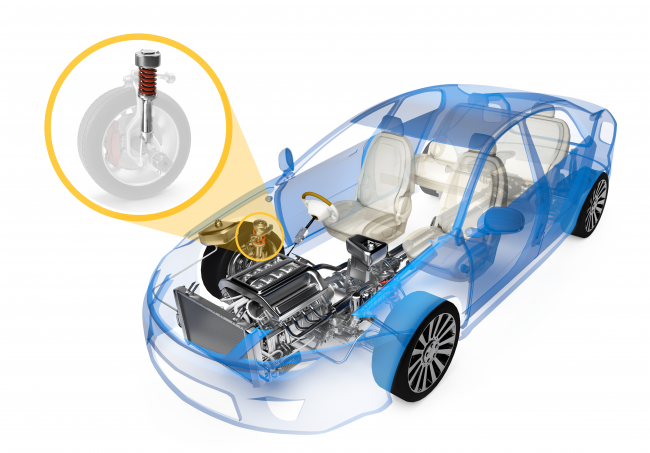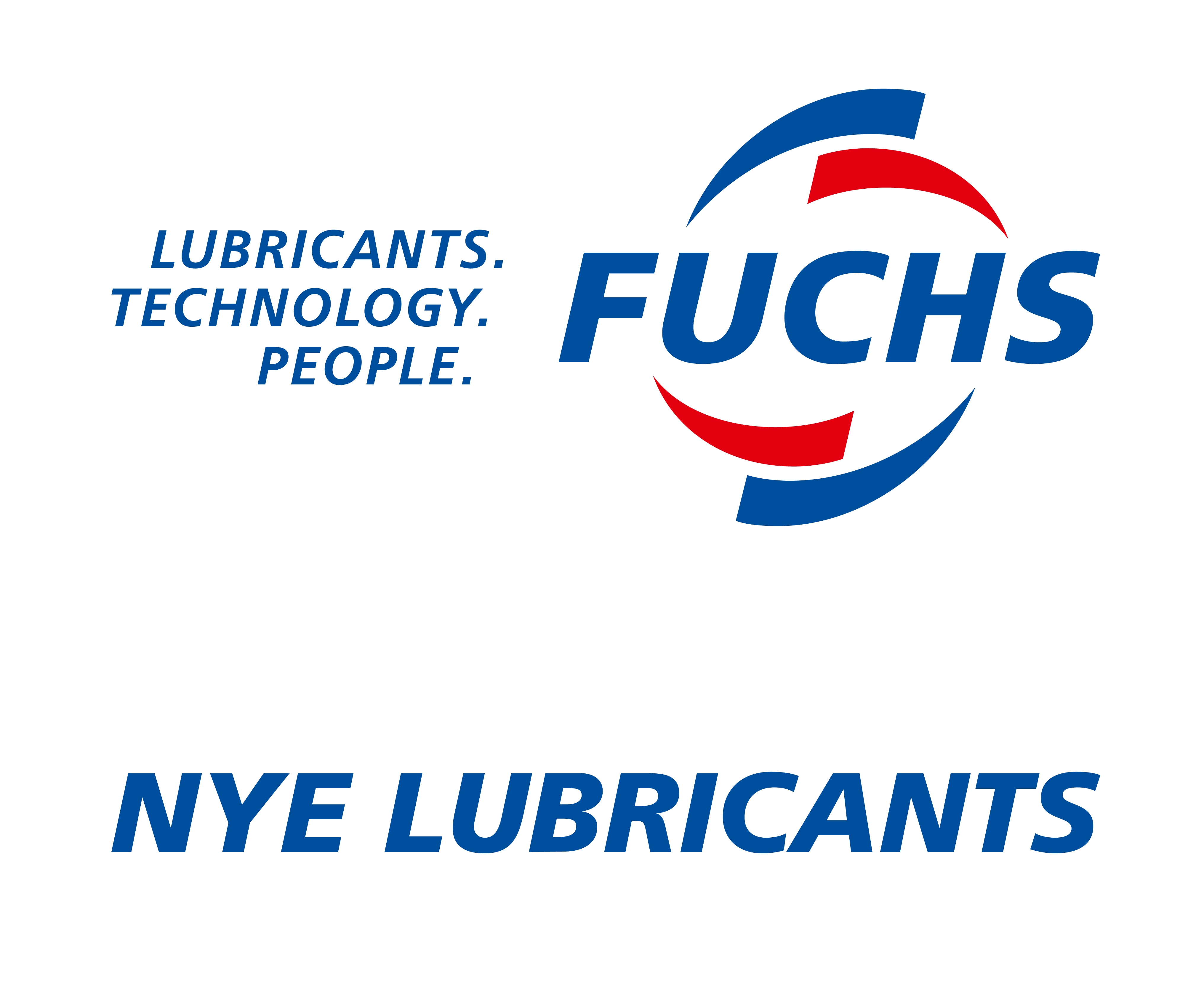Improving Suspension Components with the Right Lubricant
A strut is an integral part of a vehicle’s suspension, as it supports the vehicle and absorbs impacts from bumps, potholes, and other road disturbances. Minimizing the day to day wear and tear on these components ensures that they’ll be able to perform when even the worst pothole strikes.
The survival of these key suspension components is dependent on the lubricant selection to ensure trouble-free operation even beyond the warranty period. Lubricating the upper isolator and jounce bumper and utilizing the correct internal strut/shock oil will help reduce friction, noise, vibration and harshness (NVH) in the suspension. Nye has helped numerous OEMs successfully lubricate all three of these strut components and can suggest the ideal lubricant for your design requirements.

Upper Isolator
The upper isolator acts as a damping component at the top of the strut/shock mounting location to prevent irritating noise and vibration from transmitting through the chassis of the vehicle. The addition of a lubricant will allow elastomeric and metal components to slide against each other preventing ‘stick/ slip’ noise.
Choosing a grease with good water washout capability, elastomer compatibility, and wide temperature performance will be critical to prevent warranty returns. Nye suggests using Fluorocarbon Gel 880. This PTFE-thickened, heavy viscosity dimethyl silicone grease exhibits excellent water resistance and mechanical stability under a wide temperature range.
Jounce Bumper
A jounce bumper provides the final shock absorption when the suspension experiences extreme compression from the vehicle hitting a large bump or pothole. The addition of a synthetic grease to the jounce bumper will prevent any noise to the driver when the strut contacts the jounce bumper.
Fluorocarbon Gel 880 is also recommended in this application because of its water washout capability, elastomer compatibility, and wide temperature performance. For a non-silicone based option, Rheolube® 393, a lithium soap thickened, heavy viscosity synthetic hydrocarbon grease, is recommended.
Internal Strut/Shock Oil
A strut or shock uses an internal hydraulic oil to lubricate bearings and seals while providing a damping action to compensate for road disturbances. As a strut or shock is actuated, the exchange of oil through valves slows the action, providing the required damping.
The choice of a correct oil will reduce friction on internal parts and allow the strut to perform properly over the wide temperature ranges needed in automotive. Nye Lubricants has developed specialized oils, including Nye Synthetic Oil 148G and Nye Synthetic Oil 185D, designed specifically for this type of application.
| Product | Chemistry | Temperature Range |
Applications |
|---|
Considering a lubricant in the design of your vehicle can prevent costly warranty returns, protect your drivers, and improve your company’s standing as a reliable automotive provider.


